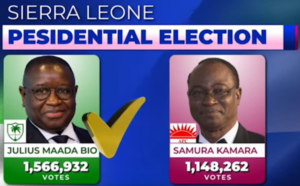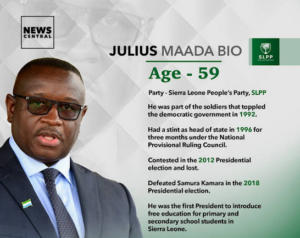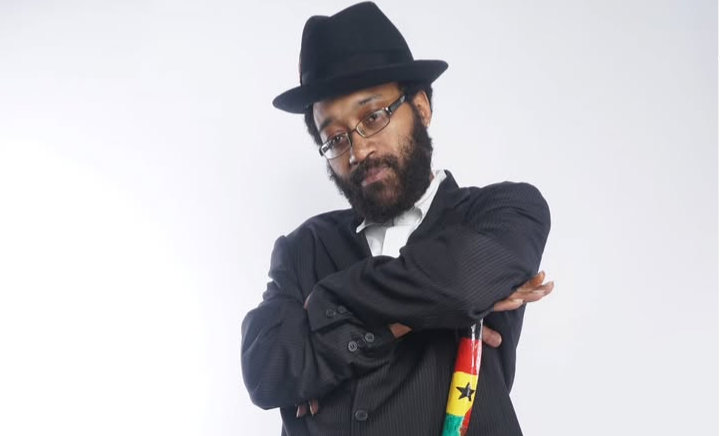Photos: YouTube Screenshot
Incumbent President Julius Maada Bio has been declared the victor by the National Election Commission with 56% of the vote in last week’s Sierra Leone elections. The leading challenger Samura Kamara who garnered 41% of the vote according to the Election Commission has rejected the outcome.

The vote amounted to a rematch of the contest five years ago when Maada Bio beat Kamara by 3%.
The National Election Commission has already promised to post vote tallies from all the precincts online after observers from EU countries raised questions about transparency. This means the results of the vote will soon be verifiable and candidates should accept the outcome.
Yet, the most remarkable thing today is that the world is even discussing the results of elections in Sierra Leone which at one point during its vicious civil war over two decades ago had sank into an abyss from which few believed it could ever return. The same observation could me made of neighboring Liberia’s fortunes; the civil war there during Charles Taylor’s regime had actually fueled Sierra Leone’s.
Sierra Leone’s remarkable turn-around from those days of mass bloodshed seems to be of little interest to some Western diplomats. Some act as if Sierra Leone is a colony and that they alone have the powers to anoint winners and losers of the election. Forget that Sierra Leone, a sovereign nation, financed 90% of its election.
Some Western officials have gone to the extent of holding news conferences to pontificate on Sierra Leone’s election outcome. Some even suggested what type of government they would like to see formed and hinted at negative impact of foreign development assistance if they don’t get their way. No nation can surrender its sovereignty under such blatant blackmail.
Some media reports also suggest that challenging results of presidential elections are endemic to Africa. How quickly we forget.
Even the U.S., which prides itself as a “leading democracy” has had its share of electoral challenges over the years. During Donald Trump’s four-year term in office all levels of government—state and federal courts courts—and the U.S. Congress, investigated allegations of Russian interference into the U.S. elections.
Long after Joe Biden’s election millions of Trump supporters still question the outcome of the vote. Trump partisans even incited a riotous crowd to Capitol Hill where some attempted to seize institutions of government. The world, including African diplomats accredited to the United States, watched aghast.
Challenging presidential election results—barring Obama’s election—have become routine in the United States in recent years.
One can go as far back as 2000. Then, the Republican-dominated Florida State Supreme Court allowed the controversial certification by an allegedly partisan Secretary of State. The result was George W. Bush’s victory over Democrat Al Gore.
Yet, did any African diplomats—during any of these occasions—hold a news conference in Washington, D.C., to pronounce their views on the U.S.’s elections outcome? Is respect for sovereignty a one-way street, required to be respected by African officials while trampled over by Western diplomats in Africa?
Just as when the U.S. saw the alleged Russian interference as an attack on its sovereignty, Western diplomats must look into the mirror before they make pronouncements that may undermine the institutions that are evolving in Sierra Leone. They are not perfect, and continue to evolve; these institutions were non-existent barely two decades ago.
As with the United States, where politics is polarized and divisions driven by regional identities and ideologies—“Blue States” versus “Red States”— Sierra Leone also his its own South-East versus North-West polarization. Yet, the people of Sierra Leone will have to work together to overcome the serious economic challenges the country faces. As with all African countries, Sierra Leone’s economy has been battered by the Covid pandemic and its aftermath. Commodity export earnings and tourism receipts have declined. This has led to high levels of unemployment throughout Africa.
Sierra Leone must continue building on the institutions that have uplifted the country since the days of war. This is the only way to consolidate the foundations of a sustainable democracy.
Sierra Leone must be allowed to to consolidate its democracy and institutions without coercion from the West.








Comments are closed.